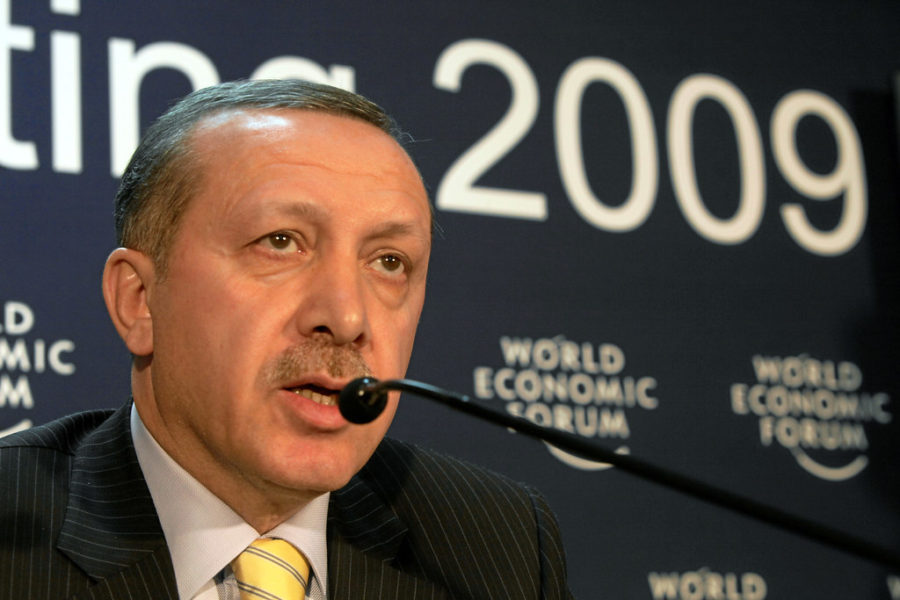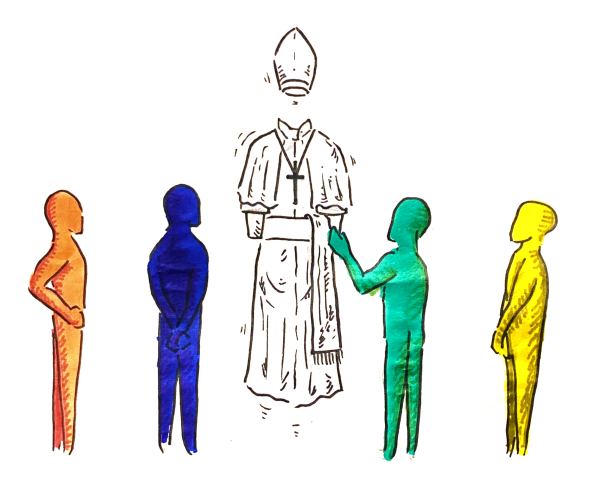Turkey’s Divisive Leader Seeks To Rebuild Ottoman-Era Dominance
After a pandemic that rocked the world of foreign policy, it would seem logical that few nations in 2020 were able to make great geopolitical strides. But that assumption doesn’t apply to Turkey.
Led by 67-year-old firebrand, Recep Tayyip Erdogan, Turkey is one of the few nations that did not let COVID-19 get in its way. In fact, Erdogan did more than just survive the pandemic: he—arguably—thrived in it. Erdogan’s aggressive foreign policy will likely propel Turkey into great-power territory in the near future.
A lifetime politician, Erdogan became Mayor of Istanbul in 1994 with Turkey’s Islamist Welfare Party. Renowned for his problem-solving skills, he gained national fame and won Turkey’s Prime Ministerial position in 2003. By 2014, Erdogan became the President of Turkey as part of the AKP Party. Riding on the back of the same Islamist ideologies he used to gain a mayoral seat, Erdogan instantly began to project Turkish power throughout Europe and the Middle East in what has been dubbed “Neo-Ottomanism.”
Much like Hungary’s Victor Orban or Russia’s Vladimir Putin, Erdogan frequently references his nation’s past—in Turkey’s case, the Ottoman Empire. Revisiting past empires is a useful strategy for strongmen because it cultivates the feelings of national pride that are key to preserving their regimes. Erdogan dreams of restoring the glory of the Ottoman Empire through aggressive military action, and his policies may be Turkey’s best chance at doing so.
Erdogan knows the timing for his policies is propitious. Indeed, the 1923 Treaty of Lausanne, a post-World War One treaty designed to carve up the remains of the Ottoman Empire, will expire in July of 2023, giving him extra legal impunity. The world is still battling the pandemic, and many surrounding states, such as Libya, Lebanon, Greece, or Syria, are weak. The rest of his neighbors, Erdogan knows, are suffering from severe demographic issues: Bulgaria, for example, has a declining population, a stagnating birth rate, and, struggling to find a stable amount of young men, is decreasing in its military capacities by the day. The time for the resurgence of the Ottoman Empire—which once stretched from Tunisia and Romania to Somalia and Saudi Arabia—is right.
What was once deemed the “sick man of Europe” is now looking to be on the mend. Over the past few years, Erdogan has begun aggressively expanding Turkish power in all directions.
To the North, he has warmongered with the Kremlin while supporting Azerbaijan against Russian-backed Armenian forces during the 2020 Nagorno-Karabakh War, a decisive Azeri victory. If there’s one thing Erdogan understands, it’s that causing crisis works: his aggressive policies have taken Turkey from a nation that was uninvolved in geopolitics to one that directly challenges Russia’s primacy in the Caucasus.
To the East, he has made large gains in Pakistan through his Islamist soft power, speading his Islamic wordlview that has shaken Turkish secularism. As he once recited from a poem: “The mosques are our barracks, the domes our helmets, the minarets our bayonets and the faithful our soldiers.” Erdogan has used dizi, Turkish television dramas, to spread his brand of Islam and help familiarize the world with Turkish history—the most famous dizi is “Dirilis: Ertugrul” (or “Resurrection: Ertugrul”) and has taken Pakistan by storm. Turkish TV is now the second most-watched worldwide after the U.S. and Turkish is now the most-watched foreign language in the world, beating Korean, Hindu, Spanish, or even Mandarin. Erdogan’s dizi crusade has made Pakistan grow closer to Turkey’s modern Islam and estrange itself from Saudi Wahhabism, a medeival, repressive, orthodox sect. By striving to become the center of the Sunni Islamic world, Erdogan is making his new Turkey more palatable to other nations, which can help it secure new alliances and avoid potential conflicts.
To the South, Erdogan’s actions have been incredibly aggressive. He sent his troops to occupy over 8,000 square miles of Northern Syria. He intervened in the bloody Libyan Civil War in support of the National Salvation Government, which is one of three other factions that oppose the U.S. and U.N.-led Government of National Accord, or GNC. He stoked tensions with Syria and Iraq over the damming of the Tigris and Euphrates Rivers, and even proposed a two-state solution to solve Cyprus’ Greco-Turkish dispute. As with his actions in Nagorno-Karabakh, Erdogan’s aggression on his Southern flank will protect Turkey. Considering Turkey’s Sunni majority, Erdogan’s efforts to project his military power could serve as a form of deterrence against a potentially aggressive Shia-majority nation, such as Iran.
Invaded by Turkey in 1974 during Operation Attila, Cyprus has been hotly contested between Turkey and Greece. The aforementioned Treaty of Lausanne, which will expire in 2023, ended all Turkish claims to the island, which was once part of their Ottoman sphere of influence. However, given that the treaty will be nullified soon—and that Turkey sees it within its historical jurisdiction—Erdogan has Cyprus firmly within his crosshairs. Cyprus is culturally split between Greeks and Turks, and the 1974 invasion divided the island along a dividing line known as the Green Line. Erdogan has already begun his slow takeover of Turkish Cyprus—he has begun unilaterally reviving Varosha, a Turkish Cypriot city that was abandoned during the invasion. Like the dizi in the Middle East, revamping Varosha could prove to be a smart move to spread Turkish soft power.
By proposing a two-state solution (whereby Turkey and Greece would each get a slice of the island), Erdogan could endow Turkey with a tactically advantageous piece of territory—or, if nothing else, a client state with a ethnically and linguistically Turkish population that would aid him in his goals for hegemony over the Eastern Mediterranean.
Erdogan’s interest in Cyprus has also played into his European strategy. To the West, Erdogan has been picking fights with the E.U. over his aggressive policies. He has threatened to occupy some of the outlying Greek islands and, as Foreign Policy writer Allison Meakem said, turned “natural gas drilling in the Eastern Mediterranean into a contact sport.” By acting aggressively against the E.U., Erdogan earns Turkey a “seat at the table” because the nature of his aggressive policies means that Turkey warrants serious diplomatic consideration. Furthermore, Erdogan’s strategy can work to force territorial concessions from the E.U. in an effort to appease Istanbul.
Erdogan’s main rival appears to be French President Emmanuel Macron. As Turkey grows more and more Muslim, France, led by Macron’s signature policy of laïcité, or secularism, is growing less tolerant of Islam. Just last year, Macron expressed outrage at the beheading of Samuel Paty, who was killed after drawing a caricature of the prophet Muhammad—a forbidden action in Islam. Following a rise in Islamic extremism—and a concurrent rise in European Islamophobia—tensions between Erdogan and Macron are high. Erdogan, trying to rebrand himself as a defender of global Islam, sees Macron as his natural adversary, and knows that feuding with Macron is a surefire way to gain respect from other Muslim nations.
Erdogan seems to be well on the way to achieving his goal of strengthening Turkey and expanding its power and sphere of influence beyond its borders. But Erdogan’s Turkey is not without its faults. Domestically, Turkey’s economy has been wheezing. Turkish democratic institutions have been slowly eroding, and its Gen Z population has not taken kindly to such backsliding. Even Erdogan’s crowning infrastructure project, the Istanbul Airport, hasn’t gotten much use due to a decline in global travel. But look to the 2011 Gezi Park protests, which were suppressed with an iron fist—Erdogan has faced unrest before, and he has lived to tell the tale.
Erdogan has a mountain to climb domestically, but if he is able to surmount Turkey’s stagnating economy, deflating currency, and disillusioned left, then he could continue to make strides in reuniting the Ottoman Empire. If recent events have taught us anything, it’s that the current international system struggles to prevent or respond to military aggression. If Erdogan is to succeed in expanding his territory and uniting the Sunni world behind him, he must continue to warmonger, conquer, and antagonize. Nice guys finish last.






